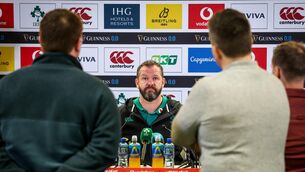Peter Jackson: Monstrous Munster revival lays claim to greatest comeback of 21st century
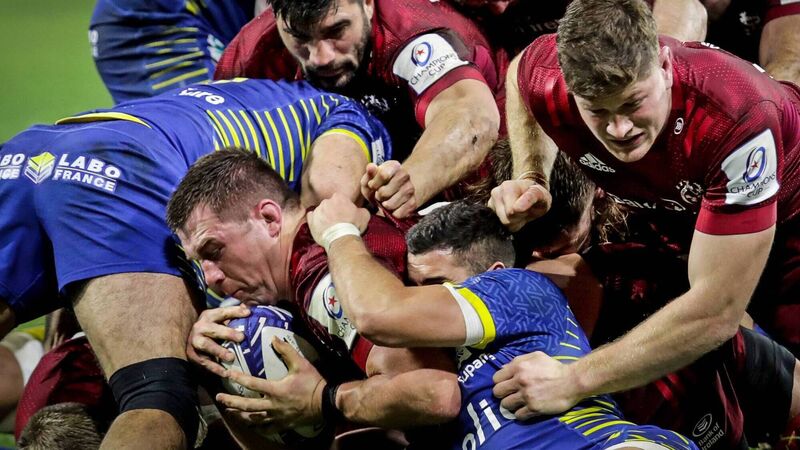
Munster's CJ Stander scores a try. Picture: INPHO/Laszlo Geczo
On the Richter Scale of seismic comebacks, Munster’s amid the volcanic mountains of central France demands the highest measurement of all.
A rise from the ashes staggering enough to put the average Phoenix out of business may yet be acknowledged as having shaken the rugby planet like no other two halves of the same match below Test level. (France coming from 14 down to score 33 unanswered points against the All Blacks in the 1999 World Cup semi-final remains in a class of its own).
The monstrous nature of Munster’s revival amounts to a strong case for theirs to be the greatest of the 21st century hitherto, greater than the one engineered by the most decorated of all New Zealand provincial teams.
Two years ago in Christchurch, the Waratahs led the Crusaders 29-0 after 29 minutes. An hour or so later, the Aussies had lost 29-31. In achieving a comeback without precedent in Super Rugby, Kieran Read’s tribe of All Blacks made the most of home advantage.
Peter O’Mahony’s indomitable squad achieved theirs in a bearpit of an arena considered superior to the Bastille if only because no crowd has ever stormed the Stade Marcel-Michelin. Munster did it for them, an inside job pushed to the limits of possibility by conceding a try in 24 seconds and four in 24 minutes.
Unlike the Crusaders, Munster had no supporters to raise their spirits. Neither did they have a hefty helping hand from the referee binning two opponents. Nor did they have to rely on a late penalty miss to complete the job as the Crusaders had done.
That required coming from even further back than Leinster against Northampton in the 2011 Heineken Cup final. Brian O’Driscoll’s team famously turned a 6-22 deficit into the second of their four winning finals with 27 unanswered points.
In Bilbao three seasons ago, Cardiff Blues, 6-20 down to Gloucester in the Challenge Cup final, won the trophy 31-30. Had he still been alive in Pasadena, old Charlie Richter would have loved the noise that one made on his machine. Munster’s would have been off the scale.
At half-time, O’Mahony resisted delving into modern history and fumbling around for a recent example of a comeback par excellence the way Sexton did in Cardiff all those years ago reminding anyone within earshot that Liverpool came from three-down to beat AC Milan in the 2005 Champions’ Cup final.
Maybe O’Mahony said: ‘Right, lads. We’ve given them a big enough lead to make a game of it. It’s time we started to play.’
For Red Army veterans, what ensued will have evoked memories of another match in another part of France, the semi-final victory over Toulouse in Bordeaux on May 6, 2000, when Mick Galwey’s team defied 36C of heat and the mightiest club to reach their first final.
As Gaillimh mingled with delirious fans, ‘some fella’ stretched out a hand with a phone at the end of it, saying: "Richard’s on the phone."
"And I’m thinking, ‘Who the hell is Richard?’" says Galwey before realising it was the Old Crescent flanker-turned-movie star, Richard Harris, calling from Mexico where he was on location for the blockbuster film Gladiator.
If O’Mahony didn’t receive a call from fellow Corkman Cillian ‘Peaky Blinders’ Murphy over the weekend, it may be only a matter of time before he does.
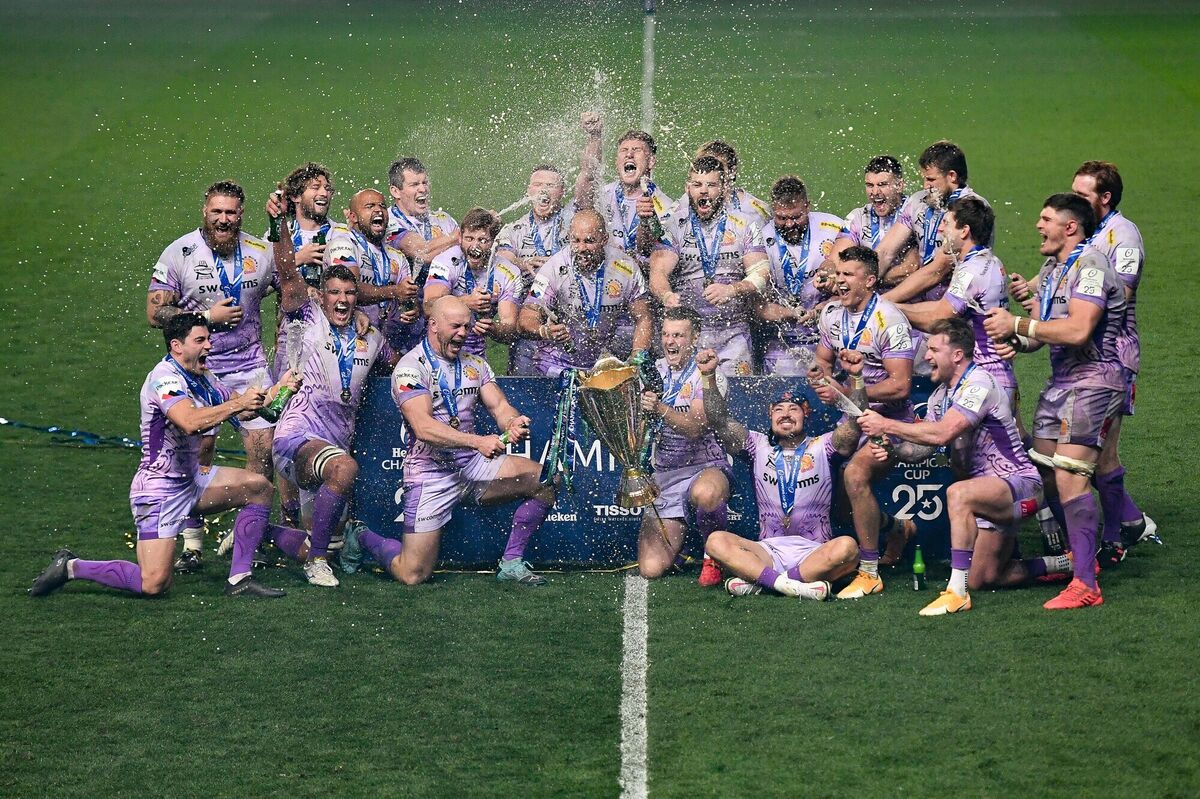
Two rounds down, two to go, and 12 of the 24 qualifiers still in contention: six French (Lyon, Racing, Toulouse, Bordeaux, La Rochelle, Clermont), three English (Wasps, Exeter, Bristol), two Irish (Leinster, Munster), one Welsh (Scarlets).
A fearful weekend on the pandemic front increases the likelihood of some contenders being knocked out off the pitch rather than on it. Covid destroyed one third of the weekend’s twelve ties with holders Exeter and Toulon the highest-profile victims, Scarlets and Toulouse the major beneficiaries.
Round 3 next month features some heavyweight duels: Munster’s Thomond return against Clermont, Toulouse at Exeter, Scarlets at Toulon, La Rochelle at Bath. Whether they all survive, heaven only knows.
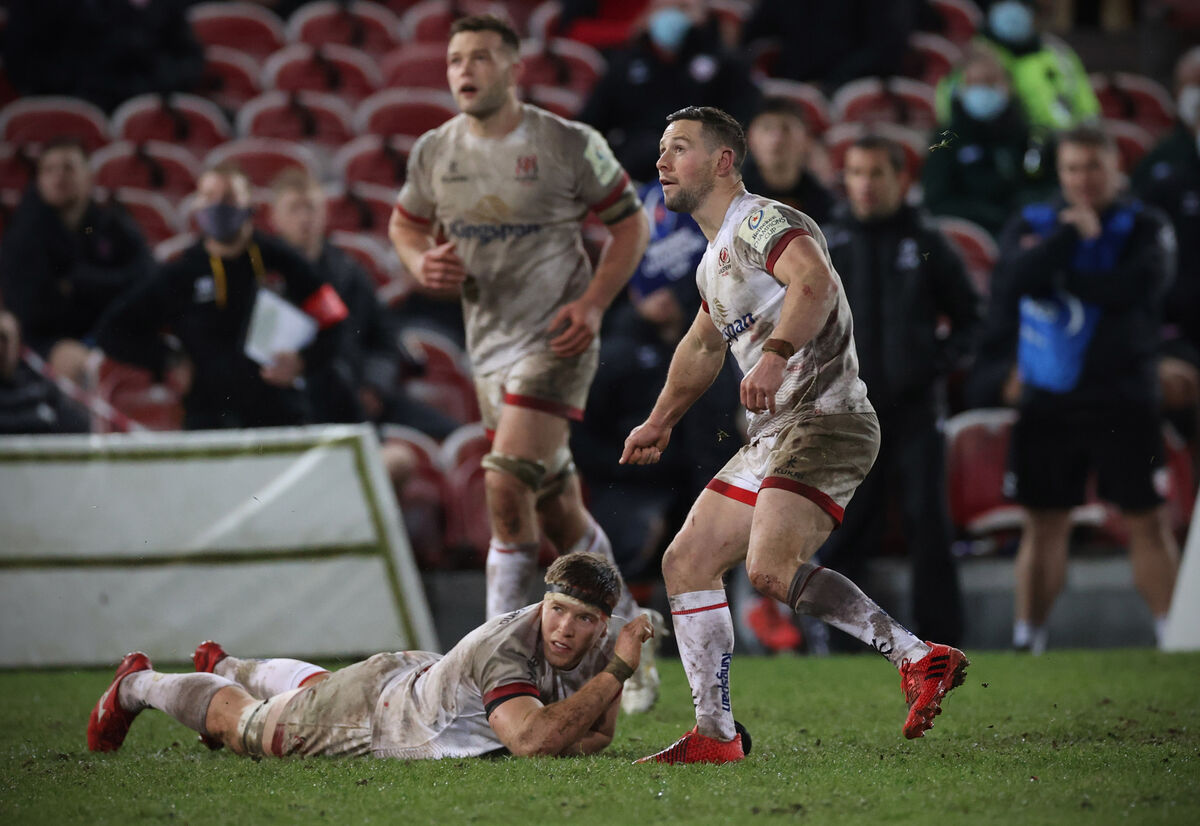
Ulster may have been forced to check out of Europe with indecent haste but at least they lingered long enough to achieve the rarest of feats. For the best part of ten minutes at Kingsholm, they ridiculed the theory that the average yellow card costs six points.
Ulster turned the numbers game inside out by managing better with 13 men as opposed to 15. Instead of shipping12 points with two of their pack in the bin, the depleted northerners won that period of an eventful match 3-0 via a John Cooney penalty.
Thanks largely to their scrum-half, they hit Gloucester with 24 points to lead by 10 before pushing their luck on the disciplinary front. Ethan McIlroy was on one minute, off the next, his deliberate knock-on punished by a yellow card and the penalty try which gave Gloucester a platform to win the match in the fifth minute of red-clock time.
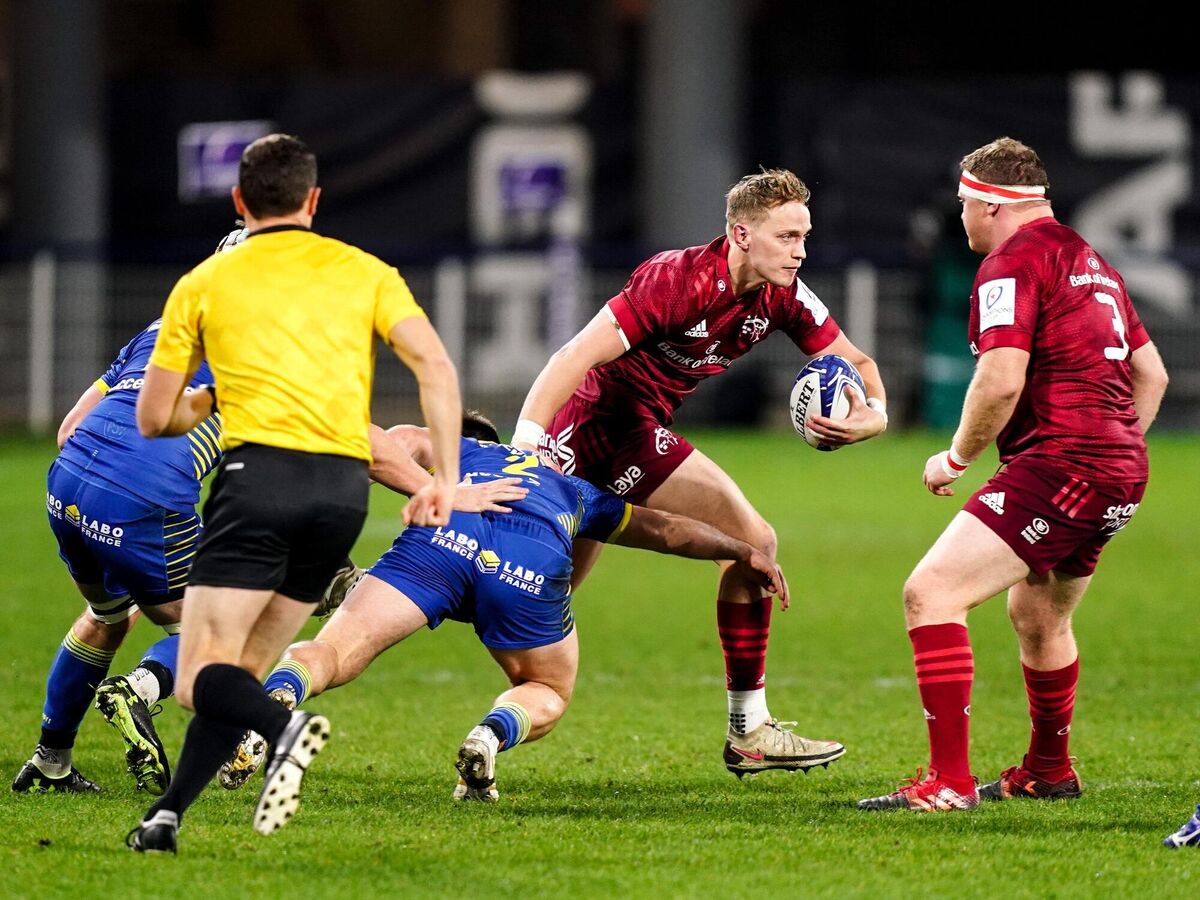
TMO may be the most controversial acronym in the game but two of the invisible breed made telling weekend interventions to save referees from themselves. In each case, the man in the van did so with a persuasion commendable for its gentility.
Louis Rees-Zammit prevents an obvious Ulster try, his deliberate knock-on robbing James Hume. It seems to be less than obvious, alas, to French referee Alexandre Ruiz. He sees it as a penalty against Gloucester’s Welsh teenager and a yellow card.
The TMO, England’s Rowan Kitt, makes a polite inquiry: "Are you sure No. 13 white cannot score from there? Look at 13. He is able to score between the posts." Ruiz looks, changes his mind: penalty try and yellow card. Justice not only done but seen to be done.
Another deliberate knock-on, by Munster’s Mike Haley, denies Damien Penaud an obvious try. After watching replays, English referee Matt Carley says: "I can’t be certain that it’s going to be a try." The TMO, Eric Guazin of France says: "We’ll show it again." This time Carley realises that the nearest defender, Peter O’Mahony, is nowhere close enough, awards Clermont their due: penalty try.
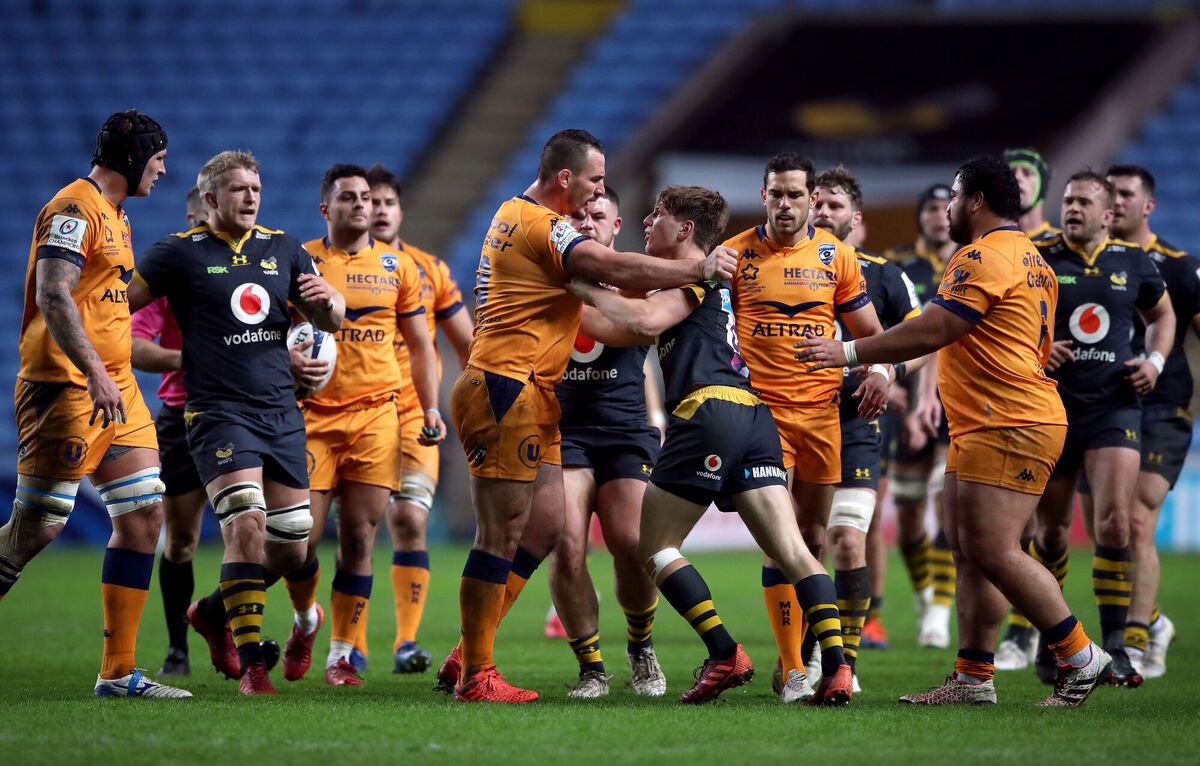
Wasps-Montpellier, the opening match of a round disfigured by Covid, may have set a Champions’ Cup record – almost an entire first half without a re-set scrum.
It was too good to last.
The ritual front-row change before the hour mark led to re-set after re-set and a recurring request from Andrew Brace asking props to "hold your weight". A double re-set tested the Irish referee’s patience: "Come on lads, speed it up."
Fans the world over have grown weary of saying the same thing, albeit in rather more colourful language. Far from ending the blight, calls to stop the clock until put-in will merely increase the overall time with matches often running to 100 minutes and more.




